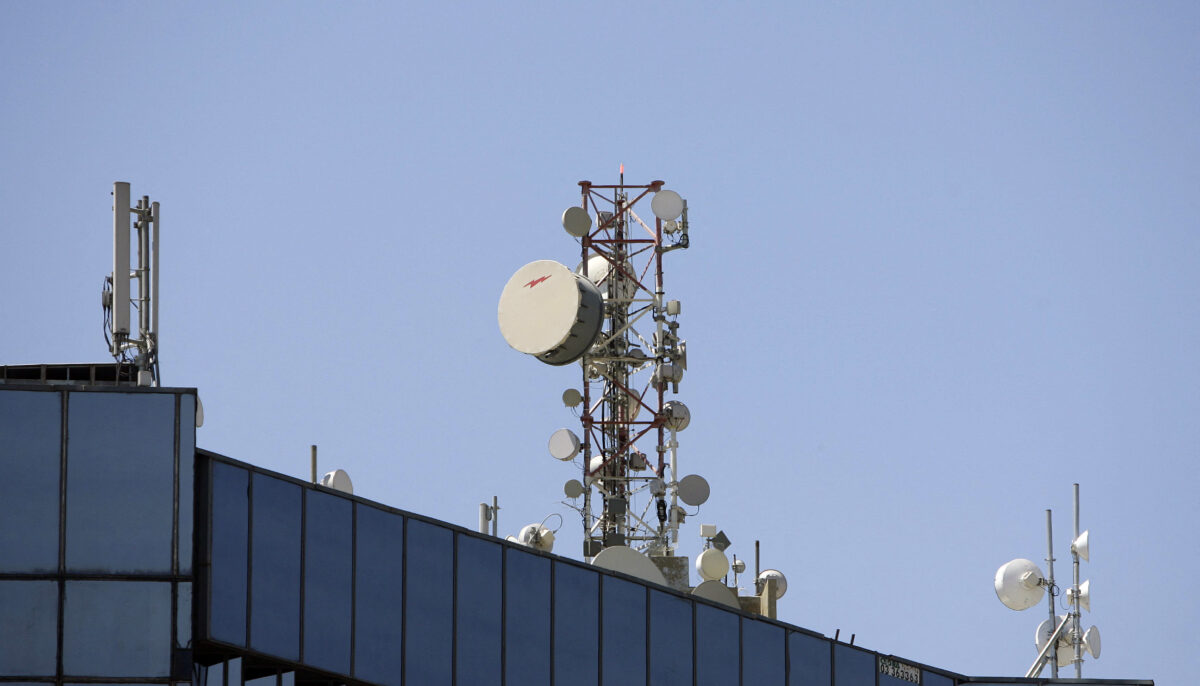In 2024, frequent telecom outages caused by continued Israeli attacks on crucial infrastructure left thousands of families in the South without the means to communicate with emergency relief services and each other. The government had failed to ensure swift repair work to reinstate connectivity.
This failure is not new. Even in times of relative stability, Lebanon’s telecom network was unreliable, despite being one of the most expensive in the region. Years of poor planning, lack of oversight, and a governance vacuum in the mobile telecom sector has kept the network ages behind.
Often characterized as “Lebanon’s oil,” the telecom sector has historically been one of the largest sources of revenue for the Lebanese state, generating LBP 23.4 trillion between 2010 and 2020 (approximately USD 15.6 billion at the then-official exchange rate of 1,500 LBP/USD), with the mobile sector accounting for nearly 69% of this total.
Despite being one of the country’s most lucrative sectors, it remains deeply dysfunctional. One of the surest ways to arrive at a sustainable solution is a governance overhaul.
What’s wrong with Lebanon’s mobile telecom sector?
The mobile telecom sector continues to be operated through two state-owned companies: MIC 1 (managed by “Alfa”) and MIC 2 (managed by “touch”). While both companies fall under state ownership, they function as separate and uncoordinated operators, each maintaining its own corporate governance, operational channels, and network management systems, leading to inefficiencies.
Although the subscriber base grew from three million to over four million users over the past decade, the companies’ revenues have declined due to rising capital and competing operating expenses.
The 2020 financial collapse and the 2024 Israeli war have further exposed the systemic flaws in Lebanon’s mobile telecom sector. Widespread service disruptions and unaffordable prices have only further pushed marginalized groups offline.
From legal ambiguities to lack of public accountability, Lebanon’s mobile telecom sector is marked by structural dysfunction that has only mushroomed over time.
First, the sector falls outside the scope of the Telecommunications Law No. 431/2002, which lacks specific provisions on mobile telecom and instead relies on vague language, leaving the sector without a clear legal and regulatory framework.
Second, the Telecommunications Regulatory Authority (TRA), legally mandated to oversee and regulate the sector as a whole, remains inactive. This vacuum has granted the Ministry of Telecommunications unchecked control over both policy and operations, creating problematic conflicts of interest.
Third, there is no separation between the Lebanese state’s multiple roles as owner, operator, and regulator. This concentration of powers subject the operations of the sector to contradictions, political interference, and clientelism.
Lastly, one of the most dangerous pitfalls of the sector’s management is the absence of financial transparency.
Most contracts, revenues, and expenditures are not publicly disclosed. Major projects are often awarded without open tenders or competitive bidding processes. Politicians and investors have managed billions in public funds behind closed doors, severely undermining accountability and eroding public trust.
A recent example is the dispute between Lebanon’s telecom companies, Alfa and touch, and the contracted service providers responsible for managing the A2P (Application-to-Person) messaging services that send verification codes and notifications to users.
Pressure from the Ministry of Telecommunications and a flawed tendering process that favored specific contractors catalyzed the disputes, making the A2P service almost dysfunctional for users.
How can governance reform fix the telecom sector?
Solutions remain confined to addressing prices, coverage, or speed, when the root cause of the sector’s failure lies in governance reform. Governance refers to the framework of rules, processes, and structures that guide how a sector should be managed, all while ensuring effectiveness, accountability, transparency, and responsiveness in decision-making.
In other words, governance is about who makes the decisions, how, and in whose interest. Good governance in mobile telecom means effective management and governing bodies, transparent contracts and procurement, independent regulatory bodies, the effective use and allocation of resources, and a clear delineation between the role of the Lebanese state as owner and operator, as well as public oversight and participation.
When governance is absent or dysfunctional, sectors like the mobile telecom become inefficient, corrupt, and subject to political meddling. This is the reality of Lebanon’s telecom sector today.
Without the adequate institutional structures needed to manage resources transparently, efficiently, and in the public interest, any technical or infrastructural advancements invested in the sector could be another watershed moment, absorbed into the same broken system.
The mobile telecom sector is already echoing the warning signs that led to the collapse of electricity and water services, making governance reform all the more urgent in today’s digital world.
The long term wins of governance reform in Lebanon
Reforming the mobile telecom sector through better governance will have a ripple effect on all other sectors in Lebanon. Residents would benefit from accessible, reliable and affordable services and more robust protection for their digital rights. Businesses and investors would gain confidence in a sector ruled by law and clear oversight, boosting innovation in services.
In today’s highly connected world, a stable telecommunications infrastructure guarantees residents better chances of accessing education, employment, and essential public services.
A well-governed sector would also strengthen Lebanon’s digital sovereignty, allowing the country to shape and secure its own digital infrastructure and policies, rather than relying on untrusted actors or unregulated platforms.
Lebanon could become a competitive player in the regional digital landscape, as talent and expertise already exist within its working population. Most importantly, it would lay the groundwork for long-term digital transformation.
By ensuring that the mobile telecom sector is resilient, inclusive, and strategically governed, Lebanon would be better positioned to adapt to technological changes and meet global standards, and avoid falling further behind in an increasingly digitized world.
Cover photo by AFP PHOTO/JOSEPH EID (Photo by JOSEPH EID / AFP)



